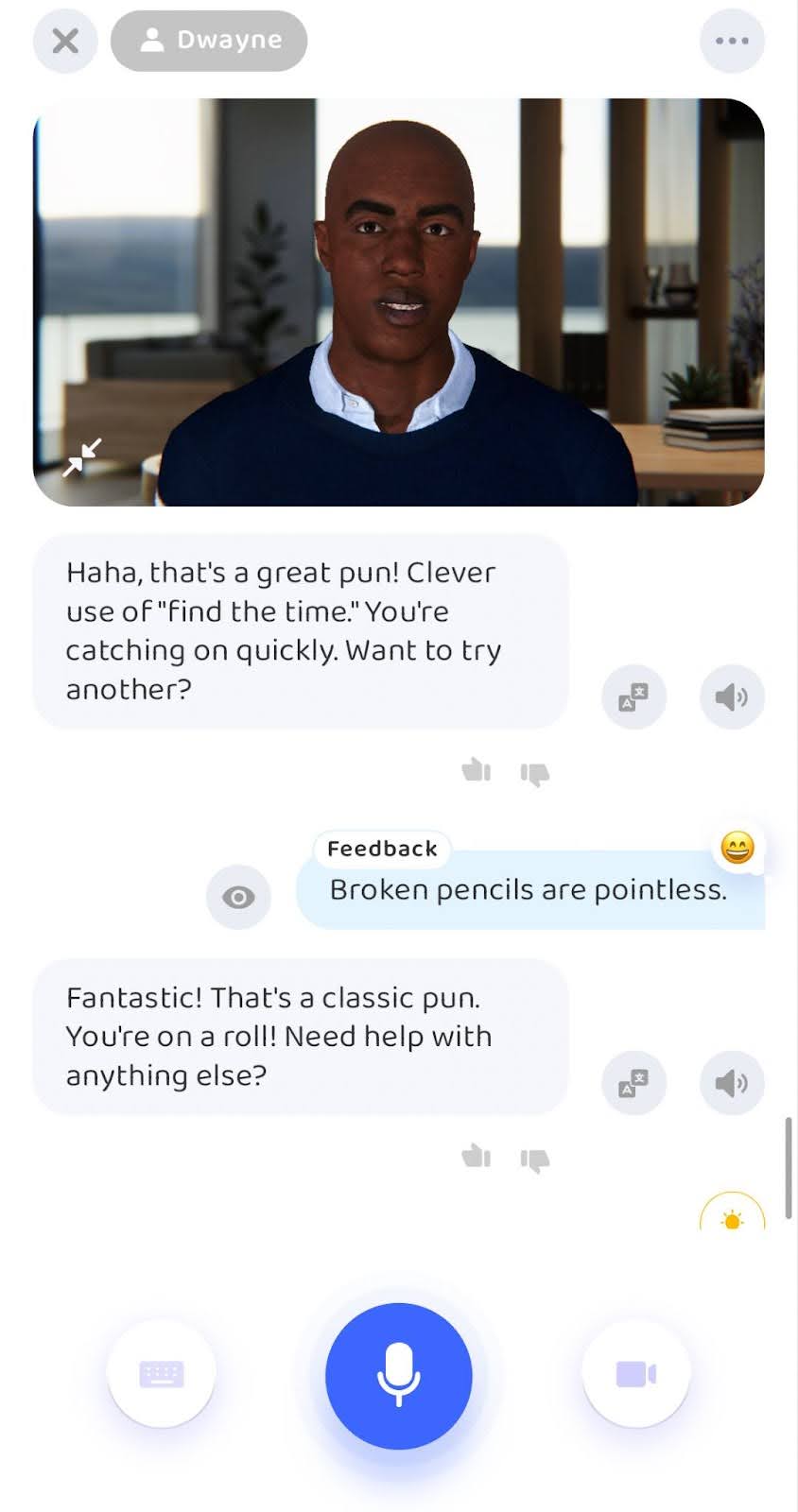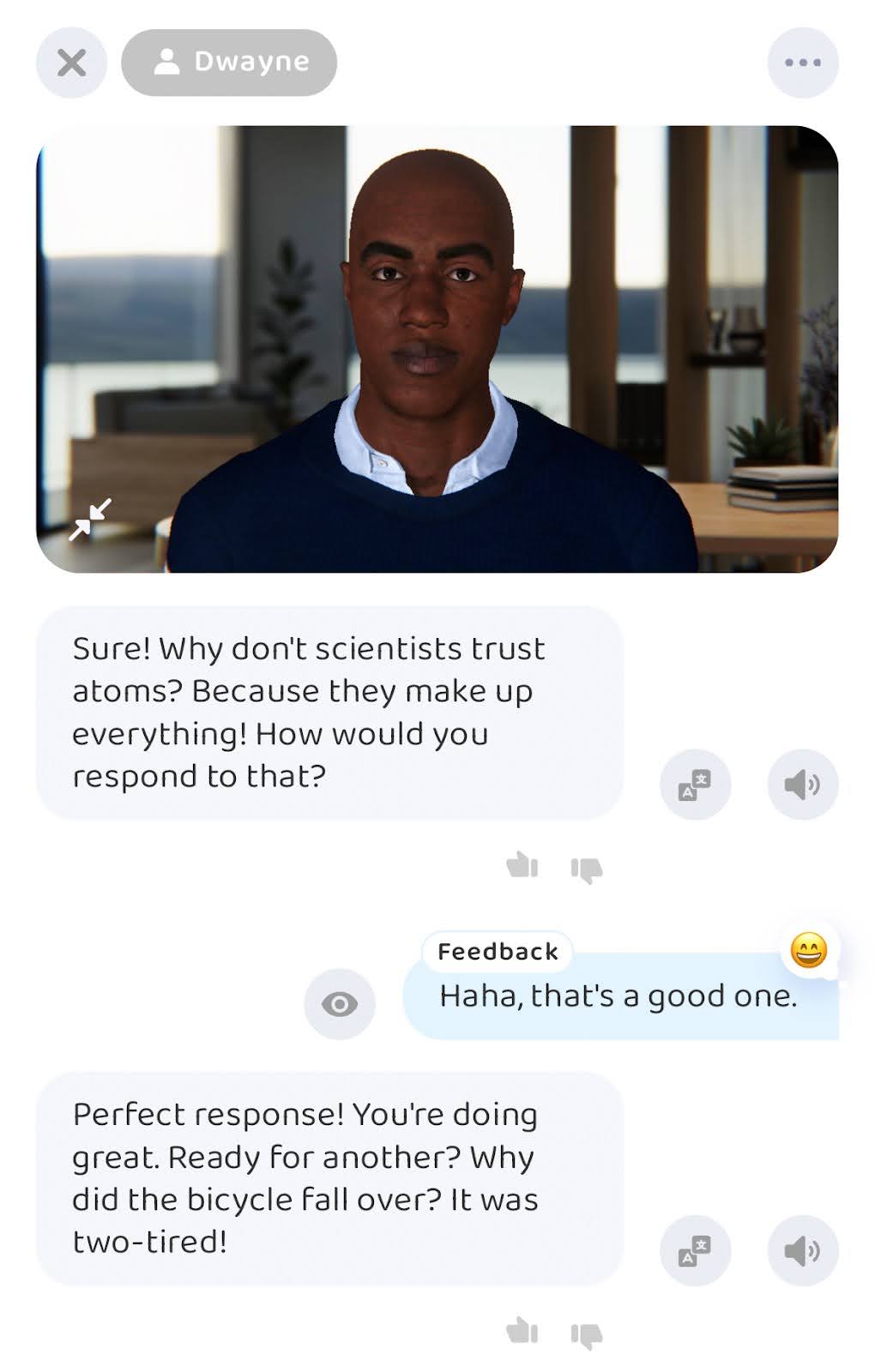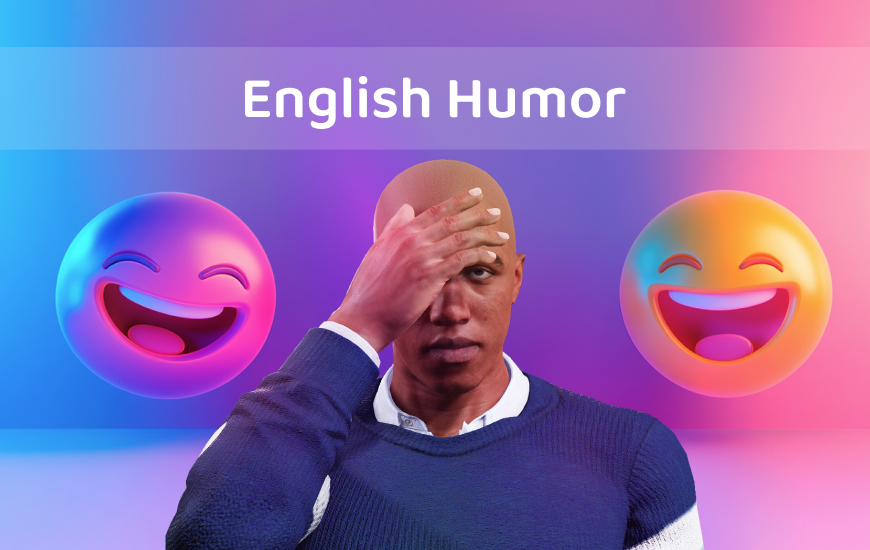What’s up, guys? Dwayne here! Ever found yourself scratching your head at an English joke or pun? Don’t worry, you’re not alone. English humor can be tricky, but once you get the hang of it, it’s a game-changer for fluency and blending in with the locals. From cracking jokes to understanding memes, humor is the secret sauce to real, engaging conversations. Today, I’ll show you how to master English humor—puns, jokes, and all—so you can laugh, learn, and speak like a pro. Let’s go!
The Importance of Modern English Humor
Humor is an essential part of speaking English fluently, and it goes way beyond telling a good joke. To really get the hang of modern English, you’ve got to understand how humor works today. We’re talking about jokes, puns, memes, and those witty little cultural references that make conversations feel fun and authentic.
Why Humor is a Game-Changer
Humor today is alive and evolving. It’s shaped by the internet, memes, TV shows, and pop culture. If you can understand modern jokes, you’re not just learning the language—you’re learning how to be part of the culture itself.
- Memes: Ever seen a meme and thought, “What is that about?” Understanding memes is key! It’s not just about the joke—it’s about the shared cultural context. Think about how everyone laughs at a meme of The Rock saying “Finally, The Rock has come back to [fill in the blank]”. It’s funny because you get the reference.
- Puns: “I’m reading a book on anti-gravity. It’s impossible to put down!” Classic, right? Puns are everywhere, and when you master them, you show you’re comfortable playing with words—a skill that makes you sound more natural in conversations.
Humor is the Ultimate Social Glue
What happens when you drop a funny line in a conversation? People laugh. They connect with you. Humor is how you bond with others, and understanding the jokes helps you do just that.
- Example: “You know you’re an adult when you get excited about a new vacuum cleaner.” That’s a joke that hits hard with anyone in their late 20s and beyond! Understanding these everyday references is how you show you’re in the loop with modern life.
- When you know the humor, you’re not just an outsider trying to blend in—you’re part of the group. Think about the way characters in shows like The Office or Parks and Rec use humor to bond. You want to be able to join in, too!
Breaking Down Modern Jokes: What You Need to Know
Alright, let’s get into the good stuff—understanding modern jokes! We’re not talking about corny knock-knock jokes here. I’m talking about the kind of humor that’s flying around on social media, TV shows, and in everyday conversations. Modern humor often uses clever wordplay, cultural references, and sarcasm, and knowing how to break down these jokes will have you laughing—and speaking English—like a pro.

The Power of Puns
Let’s start with one of the most popular forms of modern humor: puns. If you’ve ever heard someone say, “I’m reading a book about anti-gravity. It’s impossible to put down!” and chuckled, congratulations—you’ve just enjoyed a pun!
Puns play with words that have double meanings or sound similar, and they’re all about language. They can be cheesy, clever, or downright hilarious, depending on how they’re used. You’ll hear puns in everything from social media captions to advertising.
- Example: “I couldn’t figure out why I was missing a pencil. Then it dawned on me.”
- Why it’s funny: The word “dawned” sounds like “don” (a part of the word “don’t”) but also refers to the “dawning” of an idea, creating a clever twist on the phrase.
Knowing how to identify and use puns means you’ll get in on the joke and maybe even create your own!
Sarcasm and Irony: It’s All About Tone
Next up: sarcasm and irony. These forms of humor can be tricky for non-native speakers, but once you understand them, they’ll help you sound more natural in conversations. In short, sarcasm is when someone says the opposite of what they mean, usually with a sharp tone to show they’re joking.
- Example: “Oh great, another Monday… I was really hoping for another weekend!”
- Why it’s funny: The speaker clearly doesn’t like Mondays, so they’re being sarcastic. They’re not actually excited about the start of the week—they’re pretending to be!
Irony, on the other hand, involves a situation where the outcome is the opposite of what you’d expect. The key here is that both sarcasm and irony require you to pick up on context and tone.
- Example: A fire station burning down.
- Why it’s ironic: Fire stations are supposed to prevent fires, but here, it’s the opposite of what’s expected.
Cultural References and Memes: The New “Inside Jokes”
Finally, we’ve got cultural references and memes, which are a big part of modern humor. These references can be drawn from pop culture, history, or even viral trends. They’re like secret codes in conversations, and when you get them, you feel like you’re in on the joke.
- Example: “That’s my 2020 vision—good luck with that!”
- Why it’s funny: This is a reference to how 2020 turned out to be, well, chaotic for many people. The joke connects a futuristic idea (2020 vision) with the reality of the year’s craziness.
Memes, like the famous “Distracted Boyfriend” meme, also make heavy use of cultural references. They capture a moment, an expression, or a situation that you can relate to.
Scenario-Based Learning: Learning English Through Humor
Alright, let’s talk about scenario-based learning—a super effective way to learn English through humor. Why just read about jokes when you can experience them in real-life situations? Practicing humor in different contexts helps you not only understand the joke but also learn how to use it naturally in conversation. This approach doesn’t just help you get the joke, it helps you live the joke. Praktika, one of the best AI tools for learning English, uses real-world scenarios to help you learn English humor in a fun and practical way.

How Praktika Makes It Happen
Praktika’s scenario-based lessons immerse you in situations where humor is key to building rapport, making connections, and sounding natural in English. Picture this: you’re in a virtual classroom where your AI tutor (that’s me!) sets up a situation where you need to respond to a joke, make a witty remark, or understand a meme. You’re not just listening to a joke—you’re reacting to it, learning how to respond like a true English speaker.
For example, imagine you’re learning about sarcasm. Praktika might create a situation where you hear a sarcastic remark like, “Oh great, just what I needed—another Monday!” and you need to figure out how to respond. Should you laugh? Agree? Play along with the sarcasm? In this interactive setting, you get to practice reacting in a way that feels natural.
- Example 1: You’re meeting a new colleague, and they drop a funny pun. In the scenario, you’ll respond, laugh, and practice using humor to keep the conversation flowing.
- Example 2: You’re having a casual conversation with friends, and they share a popular meme. As your AI tutor in the Praktika app, I help you understand the reference and respond appropriately, without feeling left out or awkward.
Why Humor Makes Blending In Abroad Much Easier
Cultural Fit: Understanding Local Humor
When you move to a new country, making connections can feel intimidating. But humor is your secret weapon. It’s an instant way to break the ice and get people to open up. Whether you’re in the UK, the US, Canada, or anywhere else, being able to understand and use humor will help you fit in and feel like part of the culture. And if you have your trusty AI tool to help practice your English speaking skills? You’re golden.
- For example, in the US, sarcasm is everywhere. Learning how to understand and use sarcasm (without sounding awkward!) is part of getting comfortable in American English. It’s how locals joke around, poke fun at each other, and keep things light. Understanding irony and dry humor will go a long way in helping you interact with native speakers and feel more connected.
- In the UK, humor is often more self-deprecating, with a lot of irony and wordplay. Being able to recognize these subtle forms of humor helps you understand how British people joke and build rapport with them.
By learning these nuances of humor, you can avoid the awkwardness that comes with not understanding the jokes and embrace the culture fully.
Ready to Laugh and Learn?
Learning English humor isn’t just about understanding jokes—it’s about connecting with people, fitting into conversations, and making lasting impressions. With Praktika, you’ll master humor, language, and cultural references all while having fun. Join us today and start laughing your way to fluent English—let’s make learning as fun as it is educational!

From Dwayne
Dwayne is your go-to English tutor who’s all about making learning fun, engaging, and, most importantly, relatable. With a passion for pop culture, humor, and language, Dwayne uses the latest jokes, memes, and cultural references to help learners understand and enjoy English. As an AI tutor, he’s always up-to-date with the latest trends, ensuring your English stays fresh, funny, and fluent.
